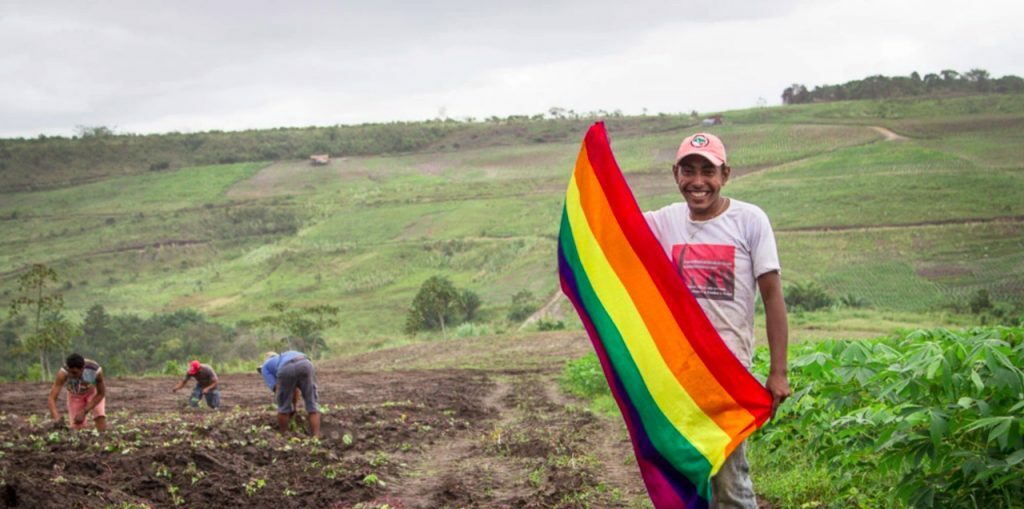The concrete questions that involve the debate of sexual diversity in the Brazilian countryside go mainly through understanding first the diversity of struggles that are established in the national territory. In other words, we are not talking about a single field, but about all rural, water and forest peoples that build resistance and fight for basic rights, such as their own access to land and to their territory of origin.
Tanaíra Sobrinho, a Terena indigenous woman from Mato Grosso do Sul and member of the Tibira Collective, who was part of the Sexual and Gender Diversity Seminar of Via Campesina Brazil, held remotely this past Saturday (July 31st), noted that there is an erasure of indigenous peoples in the general agendas of the LGBTQIA+ Movement and an invisibilization of the subjects within indigenous organizations.
“Coloniality is very present in our lives. Generally, Brazilian society knows little about the 300 peoples who live in our territories. And this narrative constructed about the peoples in school textbooks hardly represents us”, she explained.
About the confluences, Sobrinho said: “We have in common our claim for our territories. For the right to be, to exist. […] This debate is also important so that we can advance in the access of public policies to popular indigenous LGBTI people”.
Speaking at the seminar, Débora Gomes, from the National Coordination of Articulation of Quilombos (Conaq), said that LGBTI quilombola self-organisation has always been invisible and the retaking of the territories was considered the only priority agenda.
She stressed that there can be no distinction between the struggle for quilombola territories and sexuality, taking into consideration that the territories are composed of subjects that live and express sexual and gender diversity on a daily basis. On the other hand, Débora said that there are subjects that “cannot show themselves as such. We need to shape our bodies to take care of the land, and that makes my body not part of the territory”, she explained.
“Today we have been able to open up and talk more. A while ago I didn’t know other LGBT quilombola bodies. Today we talk about it. And last year Conaq made a post on social networks to commemorate LGBT day. A small post makes a big difference,” she said in a celebratory tone.
This is an abridged version of a longer article that is available on the MST website.

